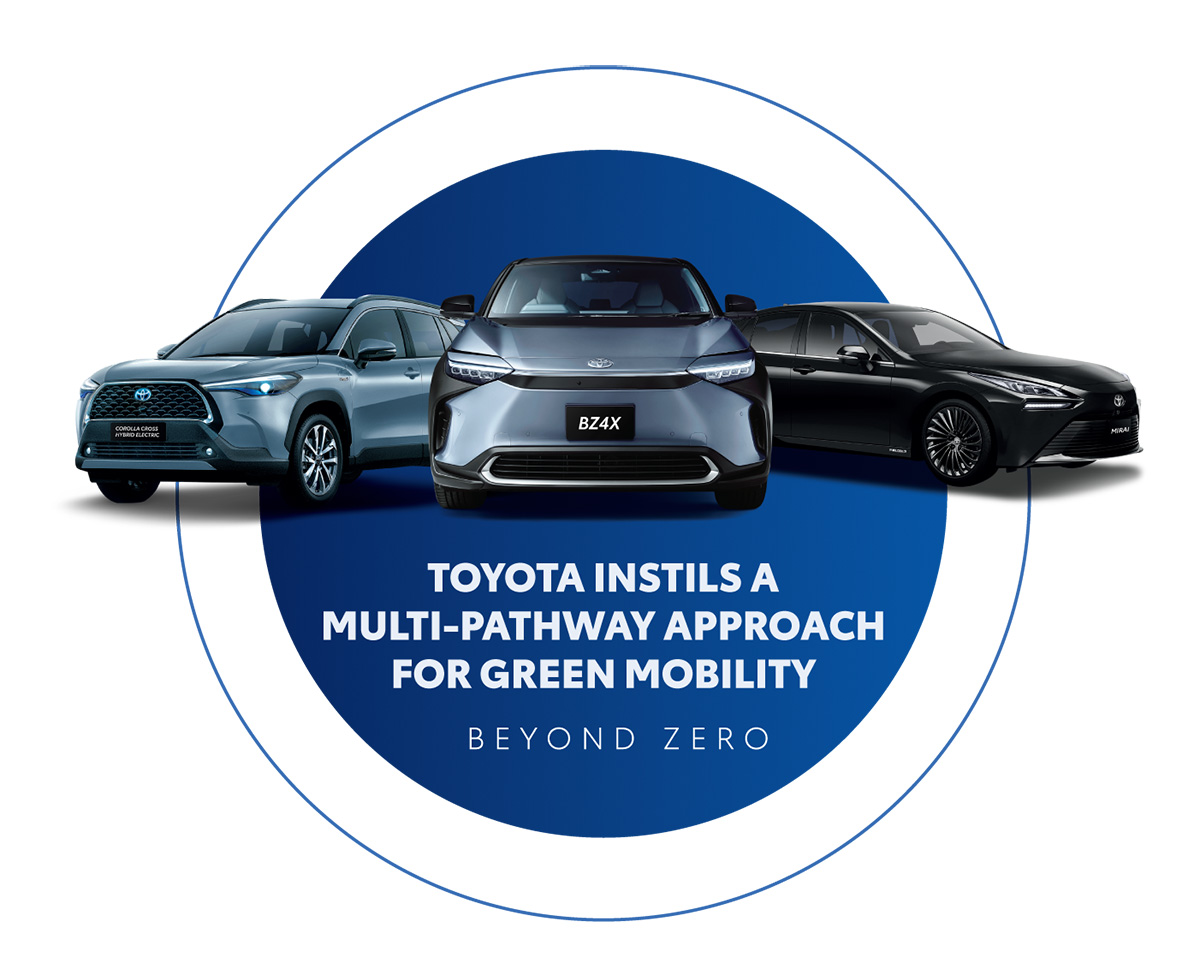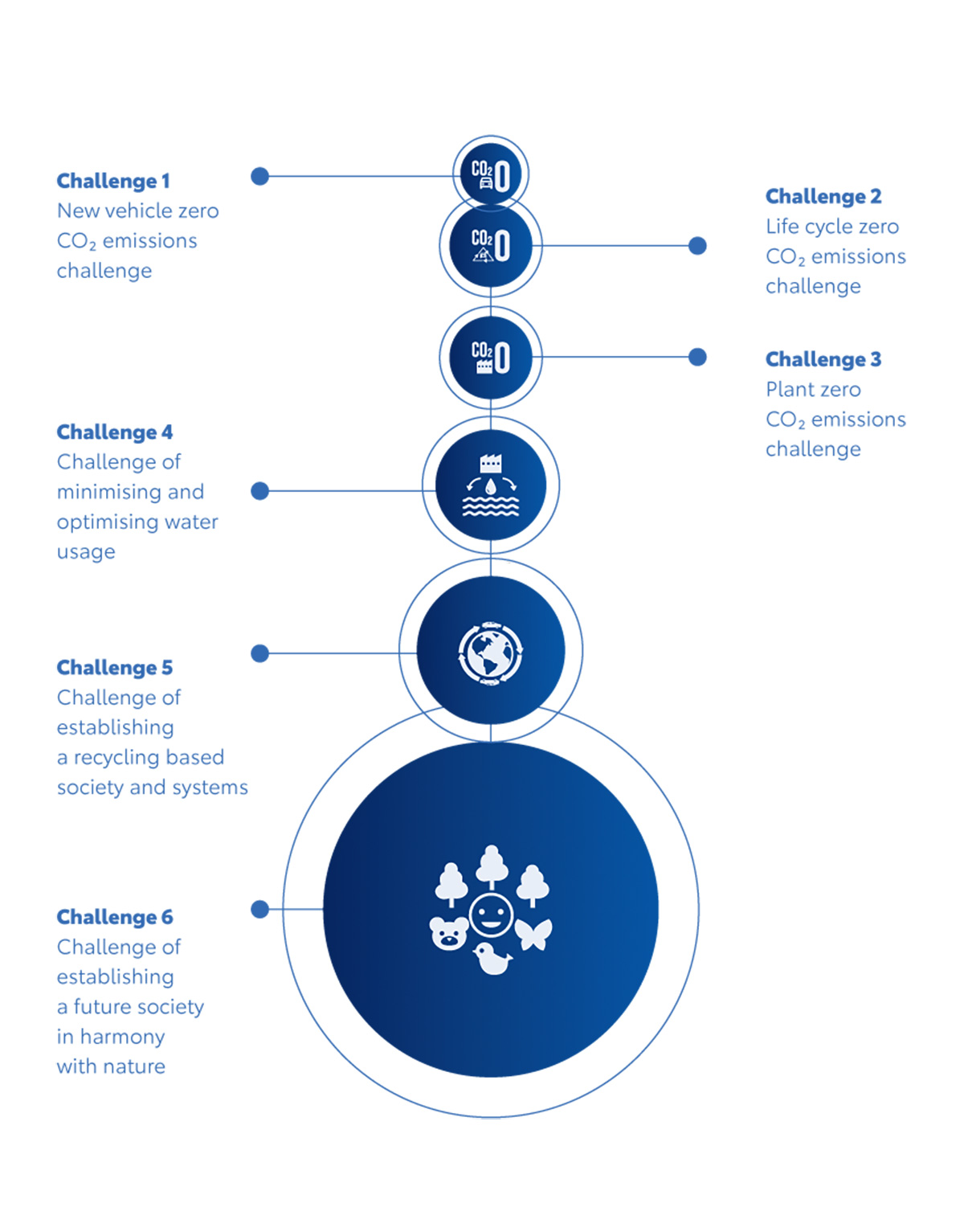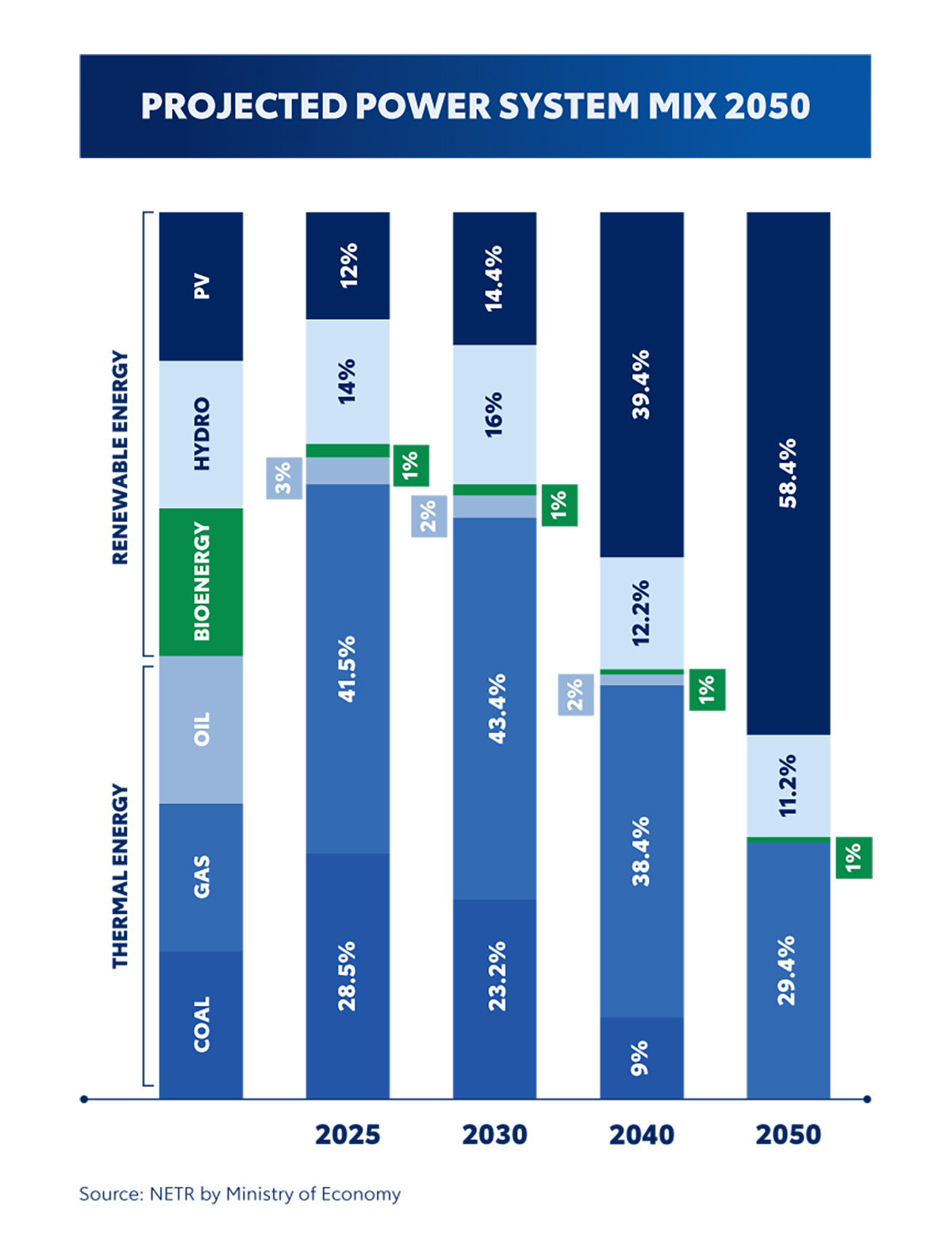Toyota adopts multipathway approach to green mobility

In an era defined by rapid technological advancements and a growing consciousness of environmental sustainability, the automotive industry is at a crossroads. As the global call for greener and more connected mobility solutions intensifies, carmakers, including UMW Toyota Motor Sdn Bhd, are steering towards a sustainable and connected future.
Toyota is on the brink of a paradigm shift, transforming into a comprehensive mobility provider with the vision to achieve net zero carbon emissions across its products, services and operations. Its far-reaching commitment to sustainable mobility goes beyond environmental considerations as it actively contributes to the growth of local businesses. However, challenges still abound.
Malaysia's reliance on fossil fuels, a common trend in other countries, has made internal combustion engines (ICE) the preferred choice for vehicles. The challenges facing the adoption of battery electric vehicles (BEVs) include inadequate infrastructure, expensive batteries and concern about range anxiety among consumers in Malaysia. Additionally, there is a need to create awareness of the need to reduce dirty energy consumption.
Toyota recognises the diverse energy landscape in different regions of Malaysia and addresses these challenges by offering a range of vehicles that provide tailored solutions that meet the unique requirements of each market.
As the company aims to continuously improve the fuel efficiency of ICE vehicles by exploring alternative fuels like Flexi-Fuel with biofuels, it has also developed a multi-pathway approach to not only foster a cleaner environment but also create a robust ecosystem for the local economy.
This approach promotes mass and accessible electrification, aligning with each country’s national interests and Sustainable Development Goals.
“Toyota's overarching vision is not just about achieving carbon neutrality but also about realising a happier, more connected society, making a profound and meaningful impact on the lives of people and forging a brighter, more accessible future for all,” says the company.
Small businesses, often the backbone of regional economies, stand to benefit from Toyota's diverse electrification solutions.
“With tailored options like hybrid electric vehicles (HEVs), plug-in HEVs and BEVs, Toyota provides a range of choices that align with the unique needs of small businesses, offering practical and cost-effective mobility solutions. UMW Toyota Motor's support for the creation of electric vehicle charging points demonstrates a proactive approach,” says the company.
In line with Malaysia's roadmap, Toyota's commitment acknowledges the necessity for robust economic projects, stimulating economic projects aligned with sustainable practices, and fostering innovation and job creation. On the global front, the company resonates not only with a commitment to sustainability but also with a dedication to uplifting the local economy and catalysing economic projects.
"As we witness the evolution of Toyota's Mobility Ecosystem, it's evident that the journey to a sustainable future extends beyond environmental considerations. It encompasses the prosperity and well-being of individuals, businesses and the nations they serve.
“Toyota's multi-pathway approach, tailored solutions and proactive measures mark significant strides towards a holistic and inclusive automotive landscape for all.”
A car for everyone
Toyota tailors electrification solutions to a community’s unique needs — taking into account economic, energy, infrastructure and usage needs — and offering a comprehensive approach to solve their problems and needs.
This goes beyond a one-size-fits-all strategy, providing choices aligned with different nations' energy landscapes and ensuring that no one is left behind in the journey to zero carbon.
Aligning with Malaysia's roadmap outlined in the National Energy Transition Roadmap and Hydrogen Economy and Technology Roadmap (HETR), Toyota introduces a diverse range of electrified vehicles.
Recognising the unique challenges posed by Malaysia's energy grid, Toyota views HEVs as the most suitable initial step to achieve decarbonisation. Its HEVs, including the locally assembled Corolla Cross Hybrid, offer a practical and cost-effective solution for the country's diverse transport needs.
“We are also expanding our HEV line-up in 2024, aligning with Malaysia’s goal of achieving net zero emissions by 2030.”
To push for a greener future, Toyota introduced BEVs to support Malaysia's goal of achieving net zero emissions by 2030. It is also part of the company’s global vision of contributing to a greener and more environmentally sustainable automotive landscape.
“The showcase of the Toyota bZ4x in Malaysia recently reflects the company's dedication to embracing diverse pathways, including BEVs, in its multi-pathway strategy for carbon neutrality.”
Innovating and preparing for the future
Toyota has been actively trying to find other innovative ways to further developments in the automotive sector by actively integrating cutting-edge technologies and pushing the boundaries of EV and HEV advancements while exploring new materials, manufacturing processes and alternative clean energy sources with reduced environmental impact.
As part of Toyota's commitment to embracing diverse pathways, the company is exploring innovative technologies and clean energy sources beyond conventional electric and hybrid vehicles. One such initiative is to further the hydrogen economy. UMW Toyota Motor advances Malaysia’s HETR through the introduction of fuel-cell EVs.
In pursuit of a sustainable energy mix, Toyota’s dedication to a hydrogen-powered future supports Malaysia's transition to a hydrogen-based transport landscape. Toyota's commitment resonates with the nation's vision, supporting Malaysia's transition to a hydrogen-based transport landscape.
“Exemplified by models like the Toyota Mirai, Toyota Sora, Toyota Hilux, Toyota GranAce and Toyota Light Duty Truck, which use fuel cell technologies to convert hydrogen into electricity, emitting only water vapour as a by-product, providing a zero-emission solution in line with Malaysia's decarbonisation goals for a cleaner transport system.”
Toyota has also put in place the Beyond Zero initiative which pledges carbon neutrality by 2050, signifying a holistic approach to environmental stewardship.
A significant achievement for Toyota is when its three carbon-neutral prototype cars completed the Thailand endurance race. The GR Corolla H2 is powered by liquid hydrogen, produced using chicken manure-generated biogas, showcasing Toyota's dedication to exploring sustainable and innovative fuel solutions.
Toyota has integrated CO2 reduction efforts throughout its vehicles' life cycle, aiming to achieve Toyota Environmental Challenge 2050, which has a set of six challenges that seek to go beyond eliminating negative environmental impacts to creating net positive impacts on the planet and society.
“Toyota is also actively exploring clean alternative energy sources and has achieved notable success in HEV sales. These HEVs contribute to significant environmental benefits, with each sale potentially translating into carbon offsets and the preservation of trees. Having sold 41,600 HEVs since 2009 resulted in the decarbonisation of 200,000 tonnes of CO2.”
“The ambitious goal of a 33% reduction in average CO2 emissions for Toyota vehicles worldwide by 2030 and surpassing 50% by 2035 compared to 2019 sets a commendable standard within the automotive industry.”
The content is a snapshot from Publisher. Refer to the original content for accurate info. Contact us for any changes.
Related Stocks
| UMW | 4.970 |
Comments



